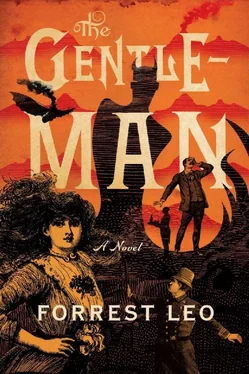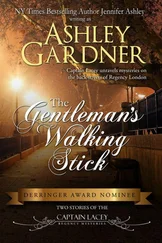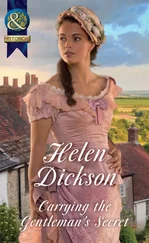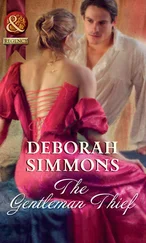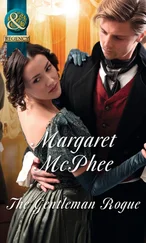*A wise man of my acquaintance once said, ‘Between writers there is no friendship possible. There is passion, enmity, worship, love, but no friendship.’ —HL.
*I like this work very much. — HL.
*I have met one very old man who went to school with Tennyson and who swears this is not true; and one who swears it is. So I do not know. I do know, though, that my cousin Ashley once carried a mare across a stream because it was pregnant and Lady Lancaster was worried it would take a chill and miscarry. (I may add that, gratifyingly, the mare delivered without mishap — and that the foal went on to become Falling Star, whose exploits on the racetrack can scarcely be overstated. The reader will recall his famous victory against Persian Emperor at Alexandra Park.) — HL.
*I was present at this party, and so I can say with authority that this is not what happened. However, I have heard that something very similar did occur once at a party given by the Count and Countess de Guiche in Paris. — HL.
*These visits were not always in an observatory capacity. See the first note here. — HL.
*Oddly, my poetic tastes in this instance align with Mr Savage’s. It should be acknowledged, however, that we are not in the majority in this judgment. I say this because Mr Savage presents his view as hard fact, when it is truly nothing but opinion. — HL.
*Pocklington Place is located just across from a small park. I will not say which one out of respect for my cousins’ privacy. — HL.
*Rather better than good, I would venture. But you needn’t take my word for it — their quality is now generally acknowledged. — HL.
*Both these assertions, contrary to others my cousin sets forth in these pages, are hard fact. — HL.
*By this Mr Savage means that he once contrived to have himself admitted to Bedlam, where he stayed for some time because none of the doctors noticed that he was perfectly sane. If not for the Herculean efforts of Mr Simmons it is likely that he would be there still. — HL.
*I have tried this. I became disoriented. — HL.
*See the first note above. — HL.
*As I have said, I am not convinced of this. I have made enquiries of his intimates, but Mr Simmons equivocates decorously and Miss Savage changes the subject. But as this is characteristic of both of them in most conversations, I cannot take it to mean one thing or another. I wish I had known Mr Savage in our youth — I would have been curious to see him as a boy. I believe he would have been very much like he is now, only his virtues (wit, sensitivity, imagination) would I think have been fresher and his vices (narcissism, vanity, cowardice) less developed. But this may not be so. He may have been precisely the way he is now, only shorter. — HL.
*I considered excising these disparaging sentences (and others like them) from this manuscript. However, upon reflection I decided to leave them. I did this not from lack of respect for Lady Lancaster, but for the very opposite reason. When this reaches publication, I look forward to seeing what she might do to Mr Savage. — HL.
*This is not where he was. — HL.
*I am surprised that no one thought of telling me. If Mr Savage had contacted me, events would have unfolded differently. I cannot say if they would have ended up better or worse, for who ever can? — HL.
*She is, as is now common knowledge. — HL.
*The informed reader will note that Mr Savage’s first collection of poetry, Pasquinades and Peregrinations, was published shortly after his seventeenth birthday. It is my favourite of his books. The following two collections — published at two-year intervals — grew progressively repetitive, though I still found some small enjoyment in them. The most recent was subject to an especially scathing review from Mr Pendergast. — HL.
*I believe Mr Simmons to be an excellent literary critic. However, he is in this instance an uncharitable one. — HL.
*My cousin Ashley had returned to London that very morning. He has since told me that his first stop was his club, where he changed clothes because he could not tolerate his own smell but refused all tonsorial advances in the name of haste, and his second was Pocklington Place. — HL.
*This is less of an exaggeration than you might think. — HL.
*See the note here. — HL.
*This statement has been seriously questioned. In the time I have known him, I have met no fewer than three women who have made Cousin Ashley regret his freedom very much indeed — and I beg you to note that I say these are only the three I have met. — HL.
*The debate which has raged around the topic of Cousin Ashley’s discovery of El Dorado deserves a volume of its own. Suffice it to say that the controversy still rages — but that he and Mr Savage are currently outfitting an expedition in hopes of settling the thing one way or the other. — HL.
*I should say we would! — HL.
*Record of this shipwreck has been made elsewhere. I will remind the reader only that Mr Lancaster single-handedly saved no fewer than seven Danish, four Norwegian, and two Algerian sailors from drowning. — HL.
*There truly were letters. I was privileged to read one or two of them before they were posted. They were moving. — HL.
*It is typical of Mr Savage that in his own mind he is Arthur Pendragon. — HL.
*I would submit, at random: the height of Athenian democracy; the Crusades; the great Age of Discovery; Constantinople in 1453 (though not exciting in a pleasant way, perhaps); Renaissance Italy; and the year 0. I could go on, but I shall not. (I am something of an amateur historian.) — HL.
*Mr Savage refers to Mr Pendergast’s most recent book, which is in fact titled Maxims. — HL.
*This is another of those instances where I must put away whatever personal antipathy there is between Mr Savage and myself and confess that he and I are in complete agreement. Mr Tompkins’s shop has excellent selections both of History and Law, which are subjects about which I am particular. — HL.
*I have often endeavoured to ascertain the precise circumstances (and date) when Messrs Simmons and Tompkins first met, but I have been unable to do so. Both men are peculiarly absent from public record, and unaccountably reticent about certain details. My own private notion is that they met many decades ago in the army — they have an unconscious ease with one another which is to be gained I think only by military comradeship or physical intimacy — but I hasten to add that this is based upon nothing but a feeling. — HL.
*I consider Miss Thomasina Kensington to be a person of enormous capacity and great depths of friendship. We are acquainted. — HL.
*This claim has been substantiated and confirmed. — HL.
*Like so many of my cousin’s poetical notions, this work has yet to see the light of day. — HL.
*Proof seems a strong word; it is at most circumstantial evidence. If a case were built upon the letters alone, I do not believe it would hold up in court. It did not in the case of Musser vs Van Dyke. — HL.
*The discerning reader will have noticed that here Mr Kensington displays not sophistry but astute apprehension and keen insight into the human heart. — HL.
*In our youth, Ashley, Vivien, and I spent a great deal of time together. Their father, Lord Lancaster, is the elder brother of my father. I mention this only to state that never, in all our time together, did Ashley Lancaster display toward me, or any person or thing in my sight, deliberate cruelty. He is not a man who torments for pleasure. — HL.
*Mr Savage believes himself fiendishly clever for ending a chapter mid-sentence, sans punctuation. I vainly endeavoured to have it changed, but he smiled at me in that odd way he has (which I truthfully find a little unnerving) and said, ‘Hubert, the same was done by Cervantes — so why not by I?’ I had not time to compose the dissertation necessary to reply. — HL.
Читать дальше
